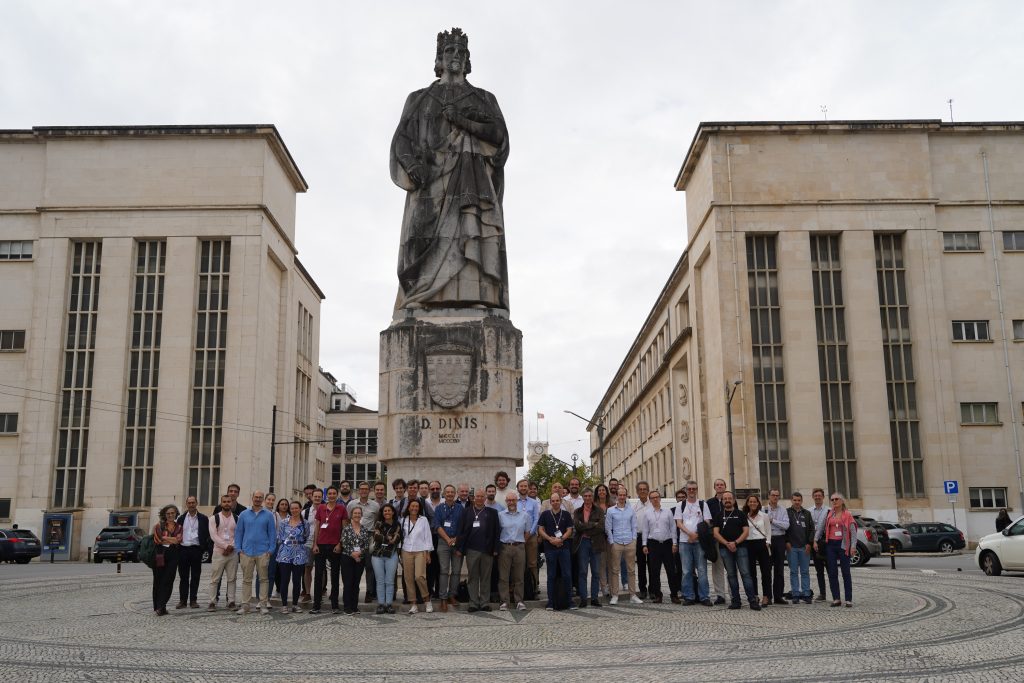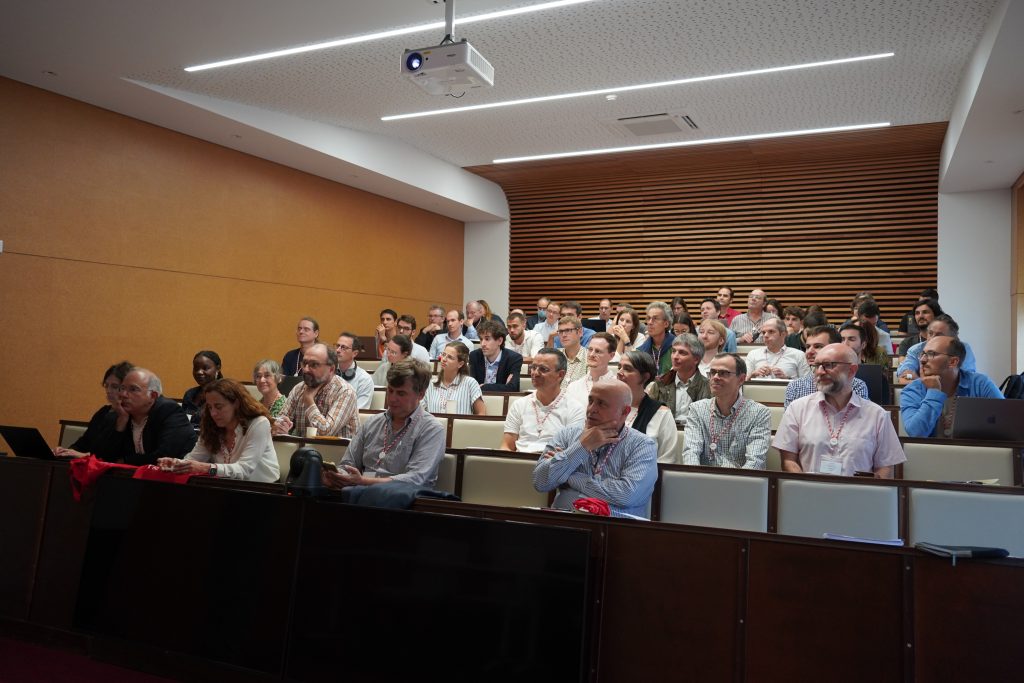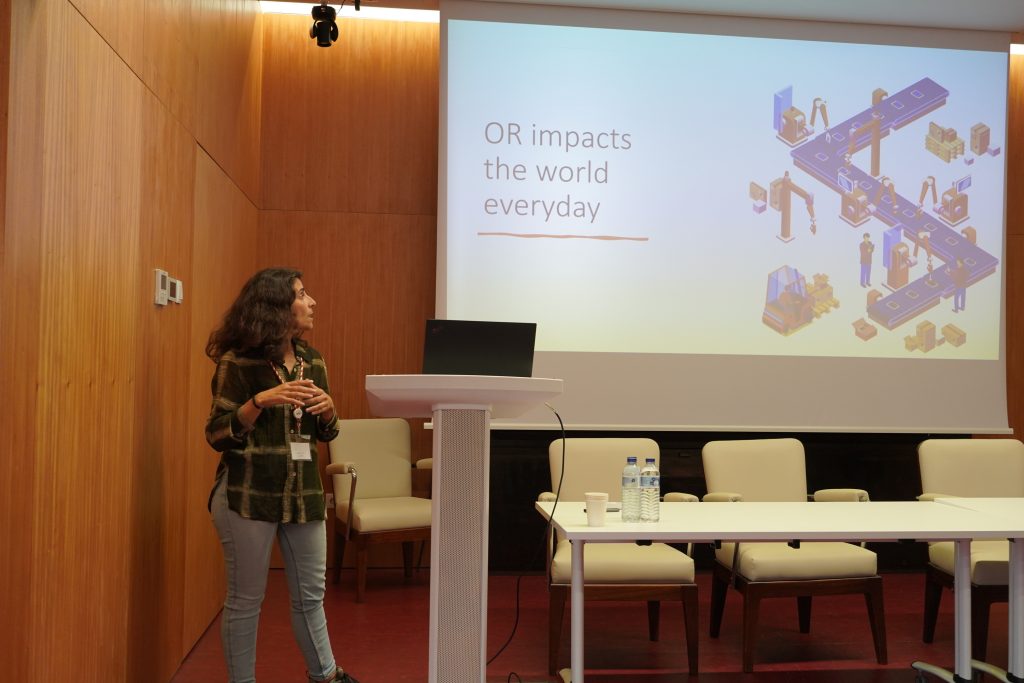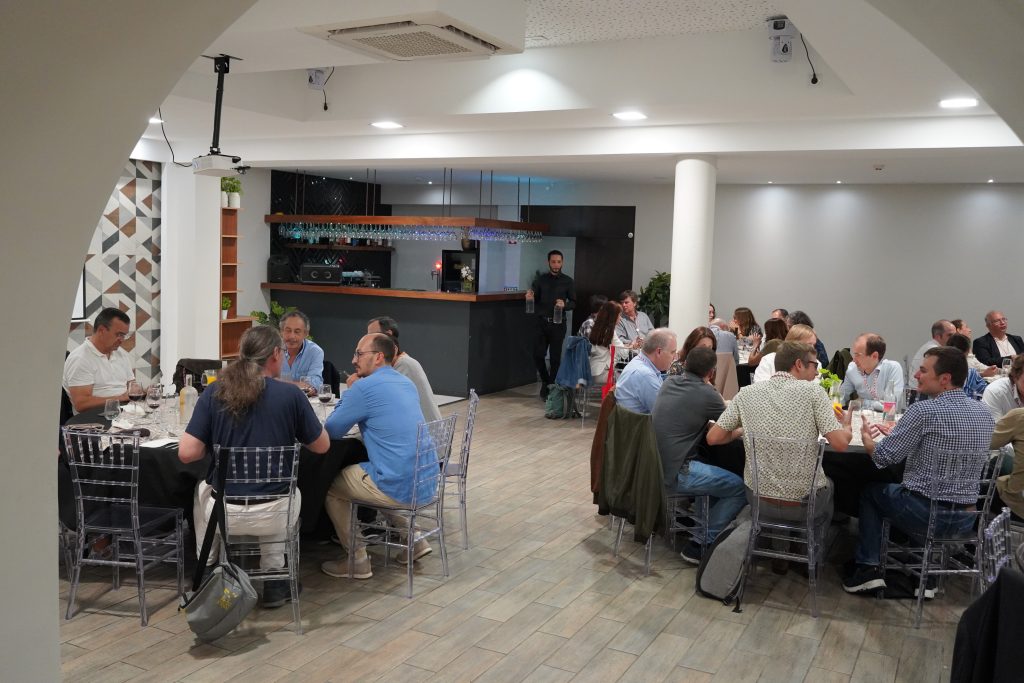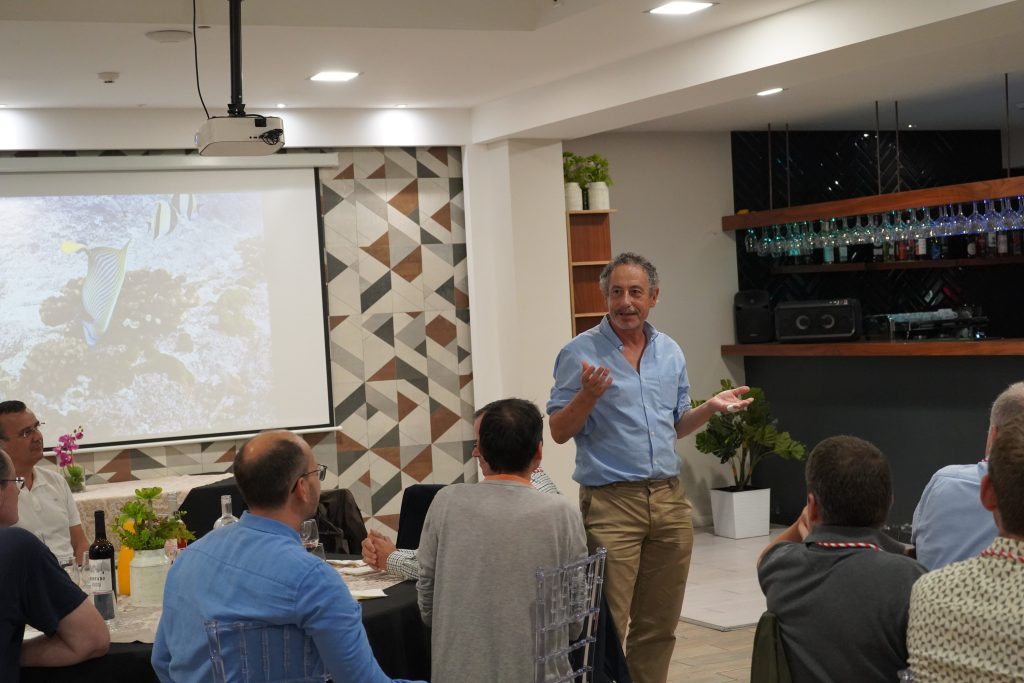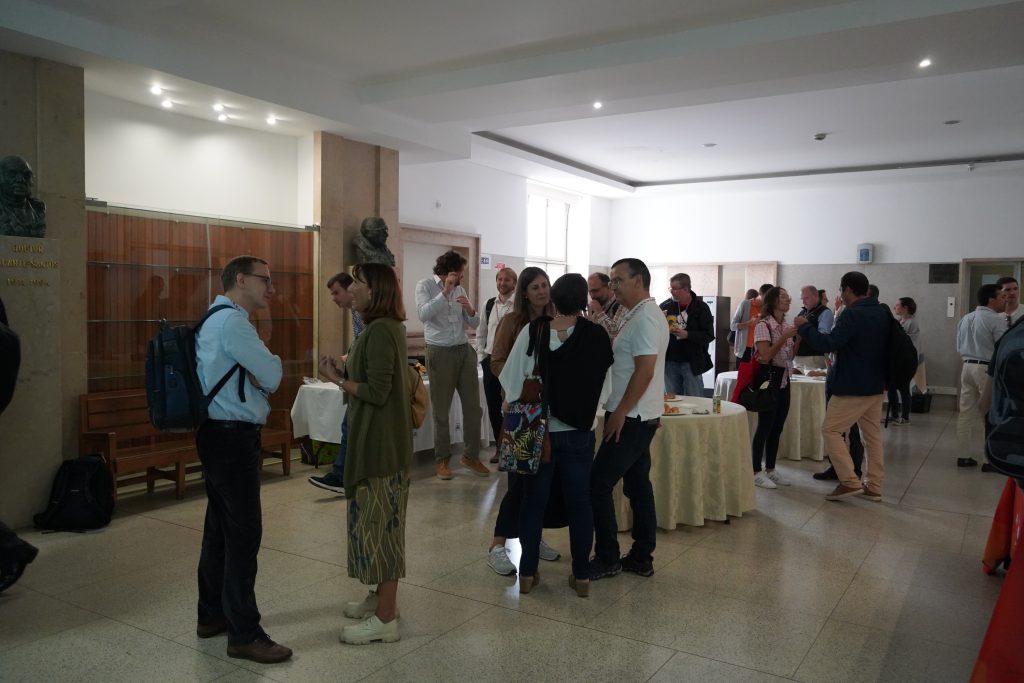OR in Collaboration
Monday 14 October – Tuesday 15 October 2024,
University of Coimbra
Conference programme
The theme of this year’s conference is the Collaboration of Operations Research practitioners with practitioners from other fields, like Machine Learning, Econometrics, Simulation, etc. We will talk about inspiring examples of synergies arising across fields, where multiple disciplines amplify each other in the ultimate quest to deliver impact on business, society, economics, and human lives in general. Speakers are also invited to share their experiences of difficulties they have encountered with such multi-disciplinary collaboration and any insights or strategies on how to address these.
Objectives
- Knowledge Exchange: Facilitate the exchange of cutting-edge knowledge and practical insights among practitioners in the field. More particularly, we want attendees to become curious about cross-discipline exchange.
- Networking: Provide a platform for professionals to build meaningful connections, fostering collaboration and partnerships within the industry and academy.
- Professional Development: Offer opportunities for attendees to enhance their skills, stay updated on industry trends, and gain practical knowledge to improve their performance in their respective roles.
Submission guidelines
We invite submissions which showcase successful collaboration examples of Operations Research with other fields and look forward to insightful discussions and networking opportunities with practitioners from various fields.
Submission is closed and authors have been notified.
Important Dates
- Submission deadline: 12 July, 2024
- Notification of acceptance: 30 July, 2024
- Author registration: 5 September, 2024
- Early registration (latest date for registration with conference dinner): 12 September, 2024
- Registration deadline: 30 September, 2024
- Event: 14-15 October, 2024
Sponsors
Many thanks to the sponsors of this event:

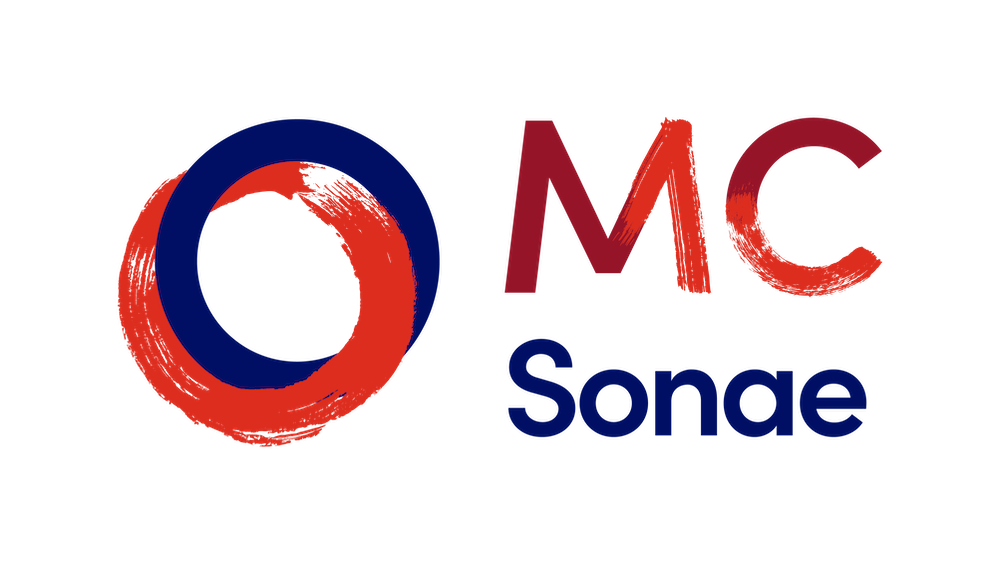
Keynote speakers
FunSearch: Discovering new mathematics and algorithms using Large Language Models
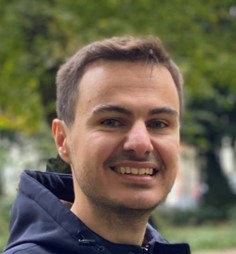
Dr. Bernardino Romera-Paredes
Abstract:
In this talk I will present FunSearch, a method to search for new solutions in mathematics and computer science. FunSearch works by pairing a pre-trained LLM, whose goal is to provide creative solutions in the form of computer code, with an automated “evaluator”, which guards against hallucinations and incorrect ideas. By iterating back-and-forth between these two components, initial solutions “evolve” into new knowledge. I will present the application of FunSearch to a central problem in extremal combinatorics — the cap set problem — where we discover new constructions of large cap sets going beyond the best known ones, both in finite dimensional and asymptotic cases. This represents the first discoveries made for established open problems using LLMs. Then, I will present the application of FunSearch to an algorithmic problem, online bin packing, which showcases the generality of the method. In this use case, FunSearch finds new heuristics that improve upon widely used baselines. I will conclude the talk by discussing the implications of searching in the space of code.
About the speaker:
Dr. Bernardino Romera-Paredes has been working as a researcher at Google DeepMind for 8 years. He has been a core team member of AlphaFold2 for protein folding, and AlphaTensor for matrix multiplication algorithms. More recently, he initiated FunSearch, a system which uses Large Language Models for program search and has discovered new mathematical knowledge. Long before that, in 2009, Bernardino started his AI journey by studying the MSc Computational Statistics and Machine Learning at UCL. In 2010 he started a PhD, also at UCL, supervised by Prof. Massimiliano Pontil and Prof. Nadia Berthouze, and in 2013 he also did an internship at Microsoft Research. After finishing his PhD in 2014, he joined the Torr Vision Group as a Postdoc at the University of Oxford, researching about semantic segmentation and zero-shot learning. He has several papers published in Nature, as well as in machine learning conferences like NeurIPS and ICML. His main motivation is to leverage the power of AI to bring light to important scientific problems.
25 years of Optimization: how to Survive Industry Projects as a Mathematician
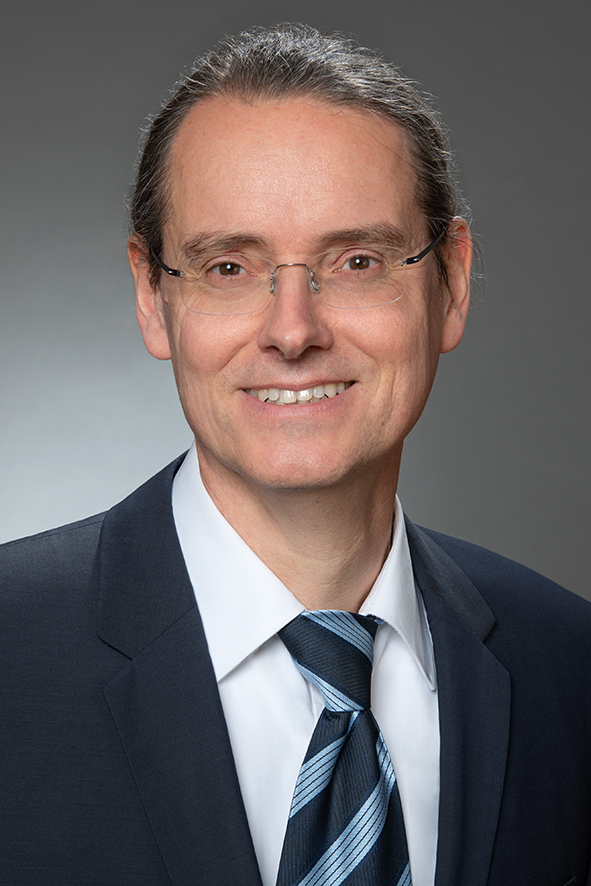
Prof. Dr. Thorsten Koch
Abstract:
This talk aims at sharing the insights and learned from 25 years of employing integer programming in industry related projects with the audience. After numerous research-industry collaborations, we found that there are several reoccurring topics during these projects.
The problems encountered seem to be universally the same, as there are standard misunderstandings between the partners. We will try to draw some general conclusions and use the projects of the author as examples to demonstrate common pitfalls. We start with some details about acquiring projects, getting them running and how to explain the results to practitioners. Furthermore, we will try to outline what is essential to make collaboration projects with industry worthwhile for both partners and what impact and repercussions they can have on a mathematical career.
Furthermore, we will give some technical notes on how to solve problems efficiently and demonstrate the different attitudes and expectations.
About the speaker:
Prof. Dr. Thorsten Koch is Professor for Software and Algorithms for Discrete Optimization at TU-Berlin and head of the Applied Algorithmic Intelligence Methods and the Digital Data and Information for Society, Science, and Culture departments at the Zuse Institute Berlin (ZIB). He worked especially on infrastructure networks, chip verification, mathematical education, and integer optimization. From 2000-20 he led the development of (M)I(N)LP Solvers at ZIB.
From 2008-14 he was the coordinator of the FORNE project, an industry collaboration project regarding gas transportation. The project received the 2016 EURO Excellence in Practice Award of the European OR Society.
From 2013-19 he was head of the GasLab and the SynLab within the Research Campus MODAL (Mathematical Optimization and Data Analysis Laboratory). The project Optimized Execution of Dispatching conducted together with Germanys largest Gas TSO became finalist of the 2020 INFORMS Innovative Applications in Analytics Award.
Currently, his work is focused on developing high-performance methods for solving large-scale structured optimization problems, including Steiner Tree Problems in Graphs (STPG) and QUBO.
From collaboration to Education and back: a continuously revolving cycle
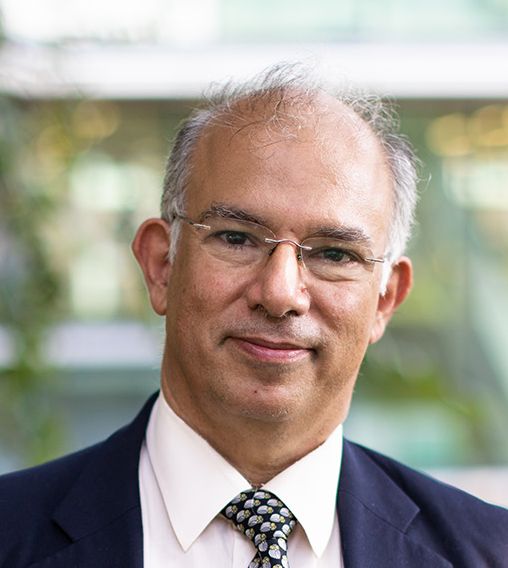
Prof. Dr. Joaquim Gromicho
Abstract:
When I departed from the University of Lisbon to join ORTEC 28 years ago, I thought, as a good Portuguese, that I was moving from academia to industry in a one-way journey. I recall my master’s students asking if I was going to work in the Netherlands or join a university. This dichotomy between ‘work’ and academia was also in my mind. Now, I am happy to realize that I did not just cross a cliff but have helped build two-way bridges: from Software Architect to Science and Education Officer, combined with a chair in Business Analytics at the University of Amsterdam. ORTEC employs several full professors, including one of the founders, and numerous assistant and associate professors. It hosts a constant flow of Master’s students pursuing graduation on relevant topics with active co-supervision from the company and a regular flow of PhD research. ORTEC actively participates in the board of the Dutch OR Society and collaborates with the major graduate school in OR in the country. Lastly, ORTEC is involved with the EURO Practitioner’s Forum.
Until about 10 years ago, the continuous education of ORTEC professionals was an organic process, always encouraged and facilitated by the company but left to individual initiatives. Now, ORTEC implements an ambitious in-house academy called the Education Factory. It offers a curriculum spanning seven domains:
– People Skills
– Business Delivery Skills
– ORTEC
– Portfolio & Go-To-Market Strategy
– Optimization
– Data Science
– Technology
Each domain offers training at different levels, from introductory to advanced, provided by the highest qualified ORTEC professionals or (occasionally) external teachers. Coordination is overseen by the Chief Science Officer (founder, board member, and past EURO keynote speaker in Poznan, Professor Gerrit Timmer), with each domain led by a domain expert, similar to the rector-dean system of a university, albeit on a different scale. I act as coordinator and active teacher of the Optimization curriculum.
Initially, attendance was based on personal interest, with only presence being registered. Now, attendance is aligned with career growth and skill development. Those who excel are awarded knowledge badges as individual assets. These badges have a time limit, reflecting the evolving nature of knowledge, and complement another program at ORTEC known as the ‘belt certificates’. Successful completion of an online assessment grants a belt, which also expires and can be renewed.
The benefits extend beyond individuals to the entire organization. It is easier to staff teams with the required expertise, visible through badges and belts, reassuring customers of this tangible asset of knowledge. Additionally, our customers engage us in training them. For that, we developed the Analytics Academy together with the University of Amsterdam. The Education Factory is founded on ORTEC’s academic collaborations and feeds back into academia: ORTEC staff teach university curricula related to our in-house developments. This leads to joint research projects fuelled by business knowledge, relevant research questions, and data—the new gold. Our in-house Centres of Excellence distil lessons learned from projects into teaching content, creating a self-amplifying loop.
About the speaker:
A MSc at University of Lisbon and a PhD at Erasmus University Rotterdam took me back to Lisbon as Assistant Professor. An offer from ORTEC brought me back to the Netherlands as a Software Architect, and now as Science and Education Officer, I foster relationships with higher education institutions, emphasizing the synergy between ORTEC and academia, noting that collaborative environments attract top students.
My longing for academia led to a part-time position at Vrije Universiteit Amsterdam, which evolved into an endowed chair of Applied Optimization in OR. I moved to the Amsterdam Business School to help design BSc and MSc programs in Data Science and Business Analytics, leading to chairing the Programme Committee for Data Science and Business Analytics at the University of Amsterdam.
As Optimization Architect at the Analytics for a Better World Institute, I contribute to improving societies. My forthcoming book, Hands-on Mathematical Optimization with Python, published by Cambridge University Press, aims to make mathematical optimization accessible to Data Science professionals. Within the EURO Practitioners’ Forum, I help bridge the gap between theory and practice of OR.
Radiotherapy Treatment Planning: The Role of Operations Research and Multidisciplinary Collaboration
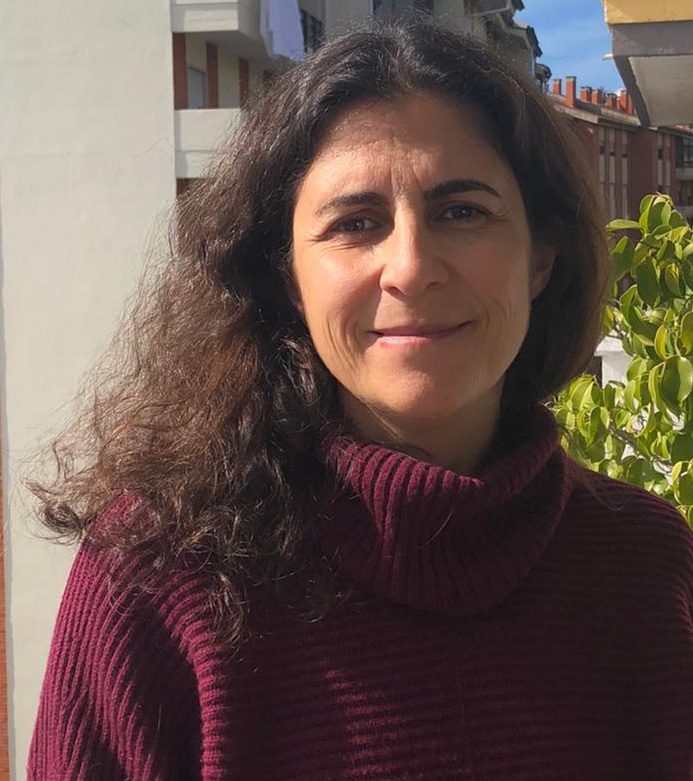
Dr. Joana Matos Dias
Abstract:
One of the most remarkable applications of Operations Research (OR) that really makes an impact is the optimization of radiotherapy treatment planning. OR has significantly and positively influenced the treatment of millions of cancer patients undergoing radiotherapy worldwide, being at the core of all available commercial solutions in the highly competitive market of treatment planning systems software. This highlights the unique economic and social impact that OR can achieve.
Radiotherapy treatment planning is a crucial step in the radiotherapy treatment workflow, responsible for creating individualized treatment plans tailored to each patient’s specific characteristics, considering target volumes that must be irradiated and assuring the best possible preservation of surrounding healthy tissues and structures. Treatment planning is responsible for determining the irradiation directions (beam angles or arcs), as well as the radiation intensities that will be produced by the treatment machine.
Traditionally reliant on manual, trial-and-error methods, radiotherapy treatment planning has evolved to a semi-automated procedure but that, even with the most current advancements, remains a complex challenge. This task can be effectively represented by a mathematical optimisation problem, yet it presents numerous challenges: it is a multi-objective, non-linear, non-convex problem with many local minima, substantial uncertainty, and leading to high-dimensional problem instances. Few real-world applications of mathematical models and optimisation algorithms encompass such a broad array of complex features.
Furthermore, addressing this problem inherently requires collaboration across multiple dimensions. It relies on the cooperation of OR practitioners with experts from other fields such as medical doctors, medical physicists, and computer scientists. It requires collaboration among academia, health institutions and companies. It also requires the integration of methodological approaches from various scientific disciplines, including mathematics, artificial intelligence, and physics.
In this talk, I will present the optimisation of radiotherapy treatment planning from an OR perspective, highlighting the challenges that arise due to its interdisciplinary nature and the necessity of working with diverse teams. Additionally, I will share some advancements achieved by my research team, emphasizing that the best results are obtained when different tools are used in a coordinated, integrated manner, namely when we are able to join together OR and other approaches, namely Machine Learning. Automating the complex and labor-intensive task of radiotherapy treatment planning by such integrated approaches holds the promise of enhancing treatment outcomes, streamlining workflows, and ultimately improving patient care.
About the speaker:
Joana Matos Dias is Associate Professor with Habilitation at the Faculty of Economics of the University of Coimbra. She holds a BSc in Computers Engineering (University of Coimbra, 1996), a MSc in Operations Research (University of Lisbon, 2000), a MSc in Quantitative Finance (University of London, 2011), a PhD and Habilitation in Management Science (University of Coimbra, 2006, 2017). She is researcher and President of the Scientific Council at INESC-Coimbra. Her research works are mostly dedicated to the development and application of quantitative models to support decision-making, integrating different methodologies coming from artificial intelligence, management or applied mathematics and addressing complex challenges across diverse domains, including supply chain management, location optimization, and healthcare. She has been involved, and has been responsible for, several academic and industry driven research projects. She is author of more than 100 publications in international journals, book chapters and conference proceedings. Scopus Author ID: 36238953500; https://www.joanamatosdias.com/
Bridging the gap between theory and practice
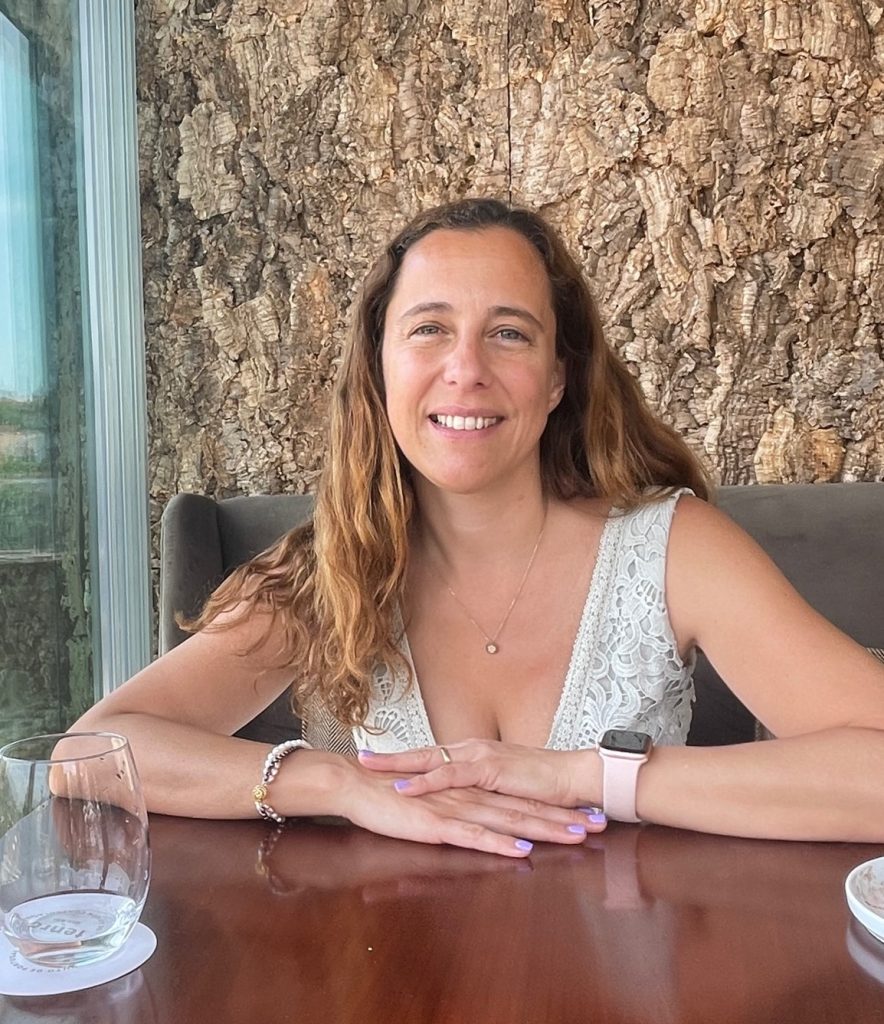
Ana Sofia Pereira
Abstract:
This talk is about sharing the experience of applying OR in the field of supply-chain while implementing Routyn.
Routyn is a fleet routing and scheduling system in the market for over 20 years and deployed successfully in transportation and logistics companies across the world. It stands on VRP techniques from the domains of mathematical programming, meta-heuristics, constraint programming and artificial intelligence. The broad use of techniques illustrates the multiple problems and sub-problems found when modelling real-life operations. In fact, the reality is made of constraints that hardly are documented in scientific literature or even taught at academia.
While solving real-life complex problems may be exciting for an OR practitioner, having them adopted in practice may be frustrating as it often implies operational changes that companies and actors are not willing to take easily.
This talk is about sharing such experience of translating reality into a workable model and applying it to practice.
About the speaker:
Ana Sofia Pereira co-founded Wide Scope with Filipe Carvalho in 2003 immediately after finishing her MSc in Operations Research at the Faculty of Sciences of the University of Lisbon. With nothing but her learnings and a deep will to build and deliver a novel approach to VRP she led the company from zero to the scale of a high-growth company, as recognized by independent analysts in several occasions. The product Routyn is live in companies from all over the world, from Australia to Colombia, the UK to Angola. And, above all mother of two!
Large Language models: A new tool in the OR toolbox?
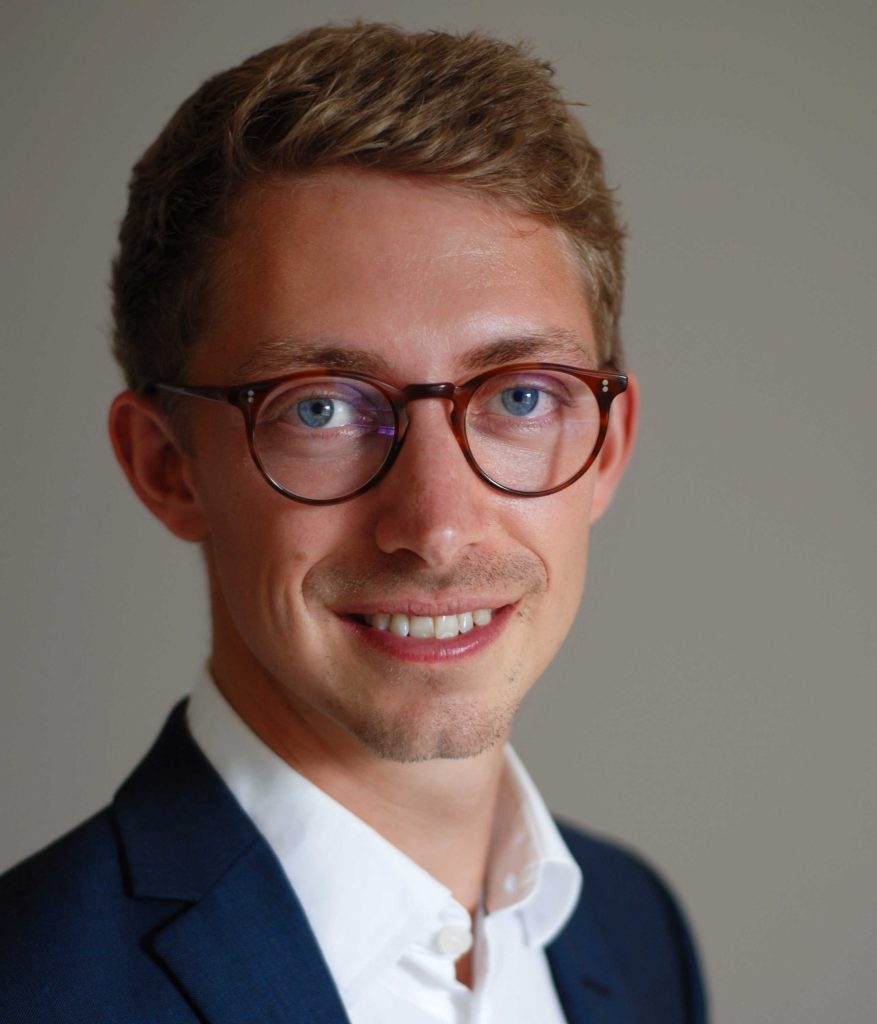
Michael Lindahl
Abstract:
Since the release of ChatGPT, large language models (LLMs) have seen unprecedented adoption and have become part of many people’s daily workflow. These models are very easy to use and can work with large amounts of unstructured data, such as text and images. The output is also very easy to understand, but it can often also be wrong due to the lack of ability in these models to apply reason and logic.
Everyone who has tried to implement Mathematical Optimization Models in practice knows that getting adoption is hard. These models require structured and complete data, which can often be a challenge to collect within an organization. The users also need to be able to interact with the final application, understand the output, and trust it.
Is it possible to get the best of both worlds and use these models to complement each other when building OR applications?
Michael will give an introduction to generative AI and large language models, explaining their capabilities, the pitfalls, and how they can fit into the OR toolbox. He will also demonstrate an example application, https://www.findgaven.ai , and how LLM’s and optimization can work together.
This will lead to discussion, with the audience invited to share not only their questions but also their own experiences, aspirations, and concerns.
About the speaker:
Michael Lindahl has worked with applying Operations Research and Analytics for 12 years across various industries, such as airports, busses, container shipping, and offshore wind farms. This have build upon a mix of technologies including business intelligence, machine learning and optimization. He has been leading product development and strategy all the way from building initial proof of concepts to improving and maintaining mission critically software platforms. Michael has a PhD from the Technical University of Denmark, and was also president of the Danish OR Society from 2015-2018.
List of talks in order of presentation:
A. S. Pereira (Wide Scope): Bridging the gap between theory and practice
L. C. Dias (University of Coimbra): Weighting life cycle environmental impacts
M. Lindahl (DTU): Large Language models: A new tool in the OR toolbox?
J. Gromicho (ORTEC): From collaboration to Education and back: a continuously revolving cycle
Organisation committee:
Vladimir Fux (Zalando), Carlos Henggeler Antunes (Univ. Coimbra), Maria João Alves (Univ. Coimbra), Ricardo Saldanha (SISCOG), Susanne Heipcke (FICO), Andy Harrison (QinetiQ)
Venue information
The conference will take place in the Student Hub, University of Coimbra, Portugal. The Student Hub is located on the ground floor of the Faculty of Medicine building, Rua Larga, right in the heart of the historical town.
See this document for detailed travel instructions and maps.
Hosted by

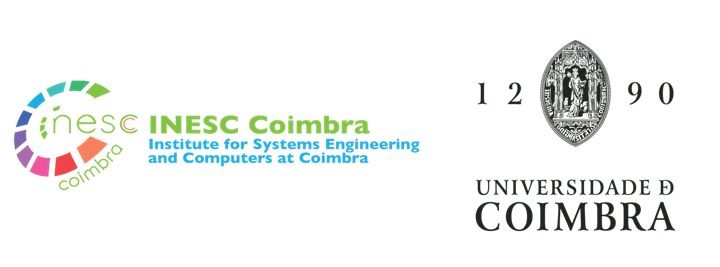
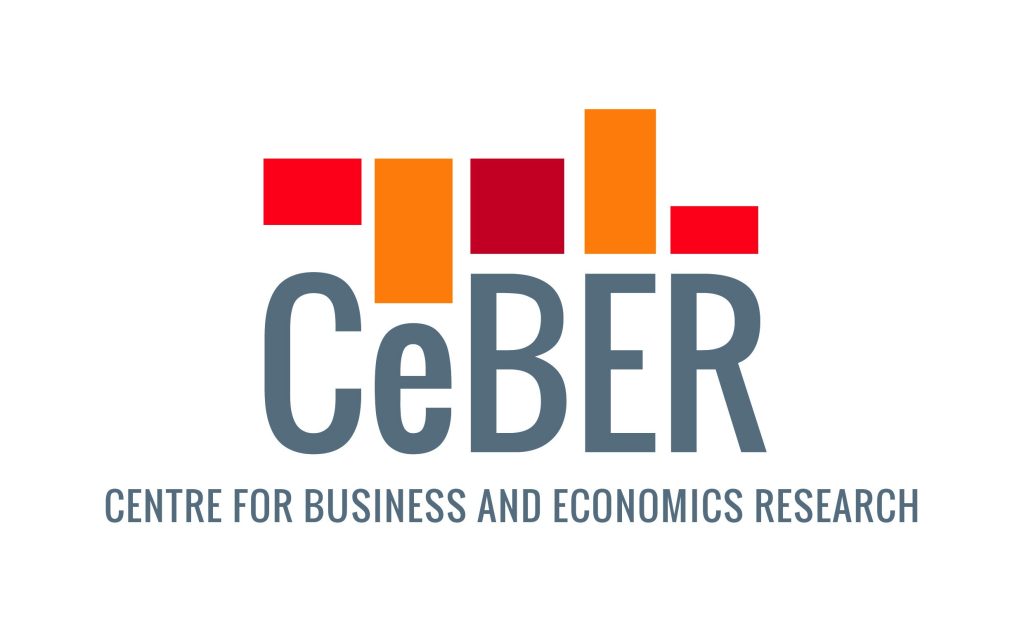
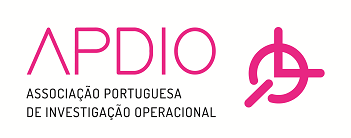
Conference pictures:
